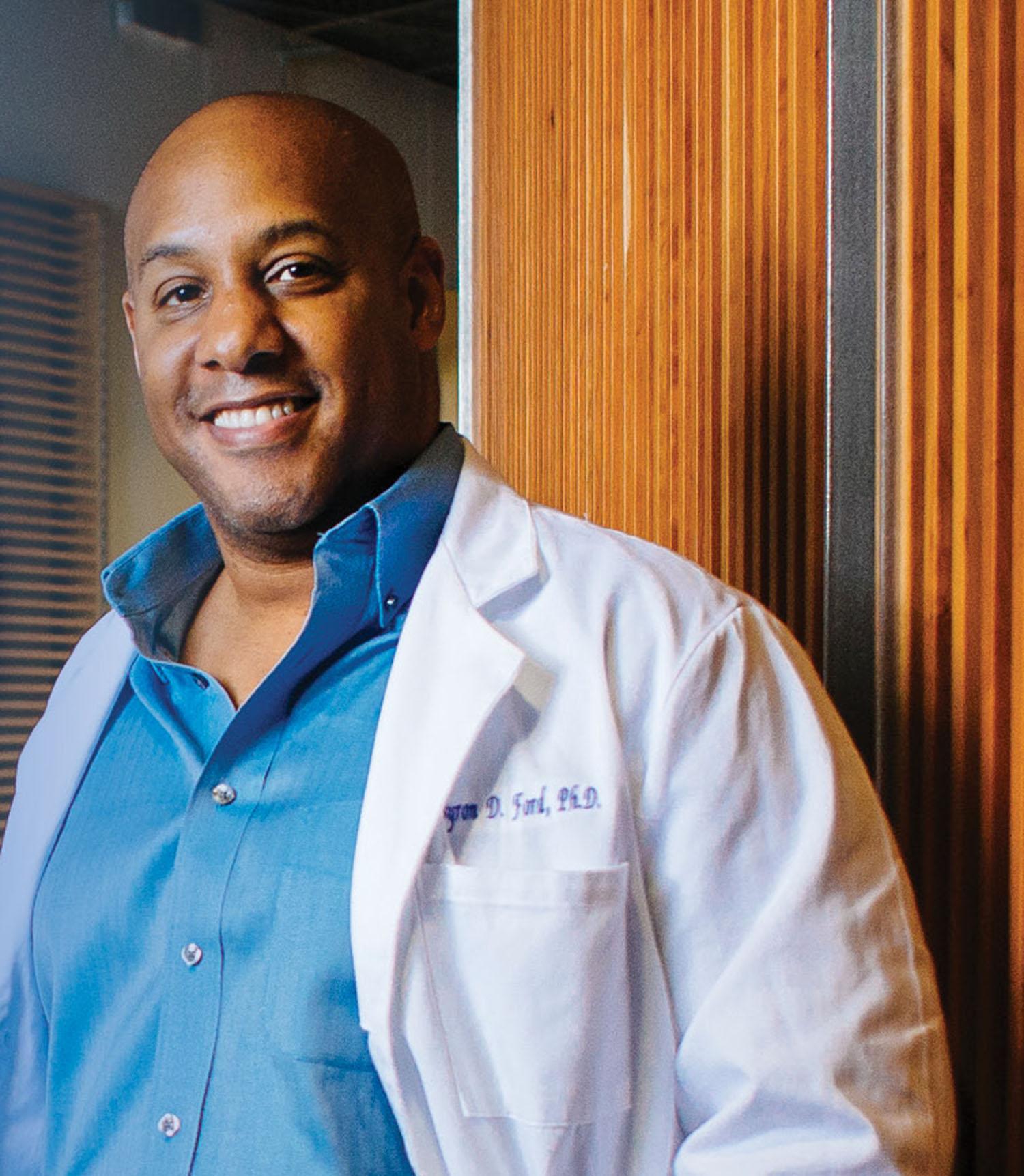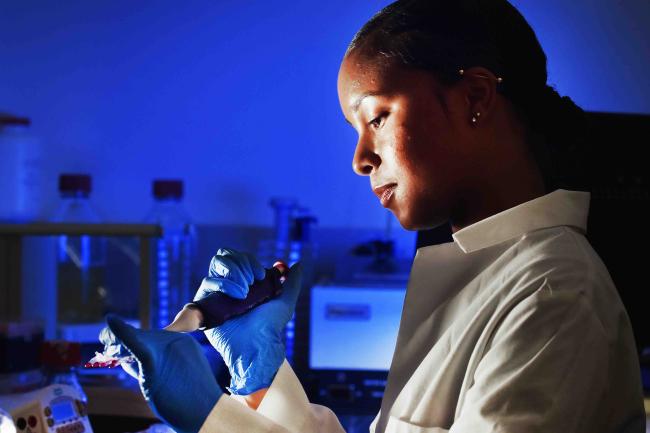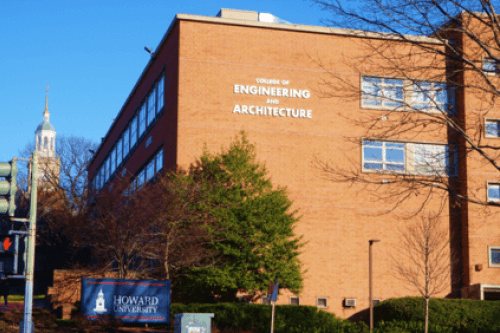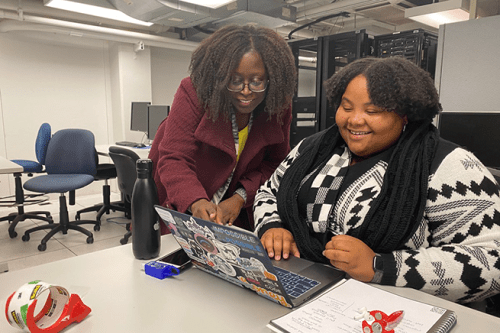Howard University has launched the Interdisciplinary Biomedical Science Graduate Program, a new Ph.D. program designed to prepare students for careers in academia, government, biotechnology, and the pharmaceutical industries.
The program, known as IBMS, launched this fall and marks a major step forward in advancing interdisciplinary research and scientific innovation at Howard. The initiative unites the strengths of the College of Medicine and the Graduate School. It was approved by the Howard University Board of Trustees in 2023.
“The Interdisciplinary Biomedical Science (IBMS) Graduate Program marks a transformative step in graduate biomedical education at Howard University,” said Anthony K. Wutoh, Ph.D., Howard University provost and chief academic officer. “By fostering collaboration across disciplines, we’re preparing the next generation of leaders to take on the world’s most urgent scientific and medical challenges.”

The IBMS Graduate Program initiative merges six existing graduate programs into a single, integrated training experience. The curriculum emphasizes grant writing, scientific communication, and interdisciplinary collaboration, preparing students to become versatile, independent thinkers ready to excel across STEM fields. The consolidation was led by Byron D. Ford, Ph.D., associate dean of research and graduate studies.
Karl Thompson, Ph.D., associate professor in the Department of Microbiology, was recently appointed as director of the newly established program. The initiative incorporates a broad scope of study across multiple disciplines:
- Tracks: Anatomy, Biochemistry and Molecular Biology, Genetics, Microbiology, Pharmacology, Physiology, and Neuroscience
- Focus Areas: Cancer biology, neuroscience, genomics, regenerative medicine, immunology, and drug discovery
- Faculty: More than 70 faculty members engaged in cutting-edge biomedical research
Dr. Ford said the program’s strength also lies in its location. Howard’s position in the nation’s capital gives students unparalleled access to leading research institutions and federal agencies.
“We’re surrounded by world-class research institutions,” Ford said. “Among them are the National Institutes of Health, the National Science Foundation, the Food and Drug Administration, and the Department of Defense.”
He noted that partnerships with institutes such as the National Institute on Alcohol Abuse and Alcoholism and the National Cancer Institute provide direct support for IBMS students engaged in collaborative research.
“This is an important moment for Howard as we launch an interdisciplinary biomedical sciences program that strengthens our mission and leadership in discovery and equity,” said Andrea A. Hayes Dixon, M.D., dean of the College of Medicine and senior vice president for health affairs. “By combining the strengths of the College of Medicine and the Graduate School, we’re offering students unique access to innovation, mentorship, and transformative research.”
Dana A. Williams, Ph.D., dean of the Howard University Graduate School, described the launch as a historic opportunity for Howard University and for HBCUs nationwide.
“This program opens new pathways for discovery, equity, and leadership in medicine and research,” Dr. Williams said. “The cross-disciplinary work of our students will shape the next generation of physician-scientists and biomedical innovators.”
Applications for the Fall 2026 cohort will open in November. The program will admit between 10 and 20 students each year, with financial support available.
For more information about the IBMS Graduate Program, including admissions requirements and curriculum details, visit gs.howard.edu/biomedical-sciences-phd
###





